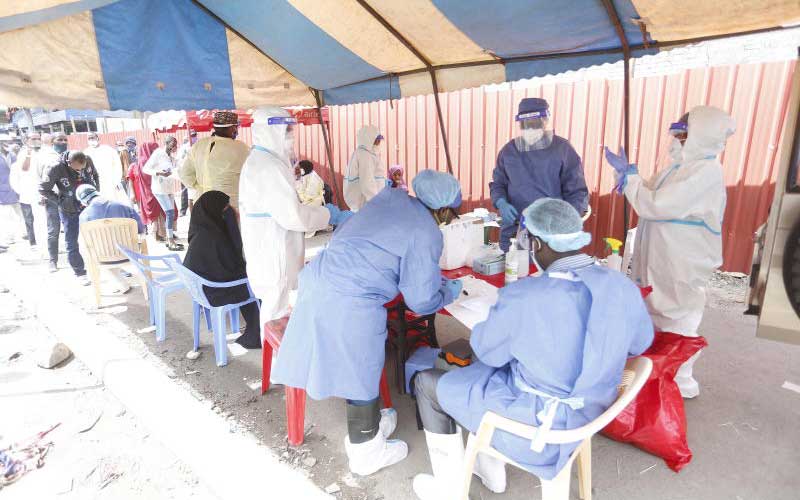×
The Standard e-Paper
Fearless, Trusted News

Health officials prepare formass testing at Fifth Street in Eastleigh, Nairobi, May 4. [Wilberforce Okwiri, Standard]
It has emerged that Kenyans are resisting or simply not turning up for Covid-19 testing in Kawangware and Eastleigh in Nairobi and Old Town in Mombasa despite data showing that these areas are local infection hotspots. This resistance greatly hinders government planning and interventions.